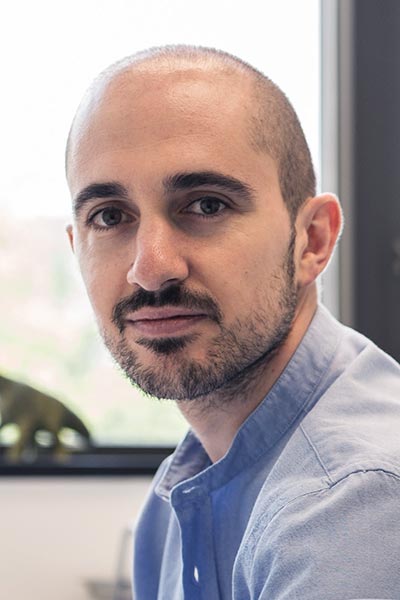2024 NextGen Stars Showcase: Israel Cañadas, PhD
The American Association for Cancer Research Annual Meeting 2024 will mark the 10th anniversary of the AACR’s NextGen Stars Program by welcoming in a class of 10 outstanding early-career scientists. Since 2014, the program has supported the professional advancement of graduate students, postdocs, and assistant professors by providing highly visible opportunities to present scientific findings at the Annual Meeting.
Hear from one of the newest NextGen Stars in their own words, below, and click here to read Q&As with other members of the NextGen Stars Class of 2024.

Israel Cañadas, PhD
AACR NextGen Stars Class of 2024
Assistant Professor
Fox Chase Cancer Center, Philadelphia, Pennsylvania
Abstract Presentation:
NG04 – Targeting DHX9 to trigger viral mimicry and immunotherapy responsiveness in small cell lung cancer
Session Details:
SY46 – Communication between DNA Damage and Immune Responses in Cancer
Monday, April 8, 12:30 – 2 p.m. PT
Ballroom 6 DE, Upper Level, Convention Center
What is the subject of your research?
Activating innate immunity in cancer cells through cytoplasmic nucleic acid-sensing pathways, a phenomenon known as “viral mimicry,” has emerged as an effective strategy to convert “cold” tumors into “hot.” Small cell lung cancer (SCLC) is the most lethal type of lung cancer and a classical “cold” tumor. The uniqueness of this tumor consists of an initial exquisite response to chemotherapy. However, at relapse, the tumor is resistant to all available therapies. Despite the addition of immune checkpoint blockade to standard chemotherapy, response rates are modest and only a small fraction of patients respond to these therapies. We recently identified a novel viral mimicry-inducing factor, DHX9, involved in the suppression of double-stranded RNAs and R-loops in cancer cells. Depletion of DHX9 triggered tumor-intrinsic interferon response and DNA damage in SCLC. Importantly, DHX9 deletion in SCLC mouse models stimulated antitumor immunity and enhanced immunotherapy response, highlighting a novel therapeutic strategy for “cold” tumors.
What sparked your interest in this area of research, and why is it important?
I am very interested in exploring the concept of “viral mimicry” as a means to initiate antitumor immune responses in cancer. The potential impact of this approach is particularly compelling, as it holds the promise of sensitizing immunologically “cold” tumors to the effectiveness of immunotherapies and other anti-cancer treatments. SCLC, being the most aggressive form of lung cancer and a classical “cold” tumor, underscores the urgency of developing innovative therapeutic strategies. Initiating viral mimicry in such aggressive tumors represents a hopeful avenue for enhancing the distal prognosis in patients facing this challenging diagnosis.
What (or who) inspired you to apply for the NextGen Stars program?
My friend and former labmate Navin Mahadevan, from Dana-Farber Cancer Institute, encouraged me to apply to the NextGen Stars program. His endorsement and insights into the program’s value played a pivotal role in motivating me to pursue this unique opportunity for professional growth and collaboration.
What are you looking forward to as a member of the NextGen Stars?
This exciting opportunity not only allows me to potentially forge connections with fellow researchers spanning diverse cancer research fields but also provides a platform to showcase my own research within the community. I am particularly enthusiastic about the prospect of establishing meaningful collaborations and, ultimately, leveraging this experience to propel my professional development forward.
More from the AACR Annual Meeting 2025
View a photo gallery of scenes from Chicago, continue the conversation on social media using the hashtag #AACR25, and read more coverage in AACR Annual Meeting News.

